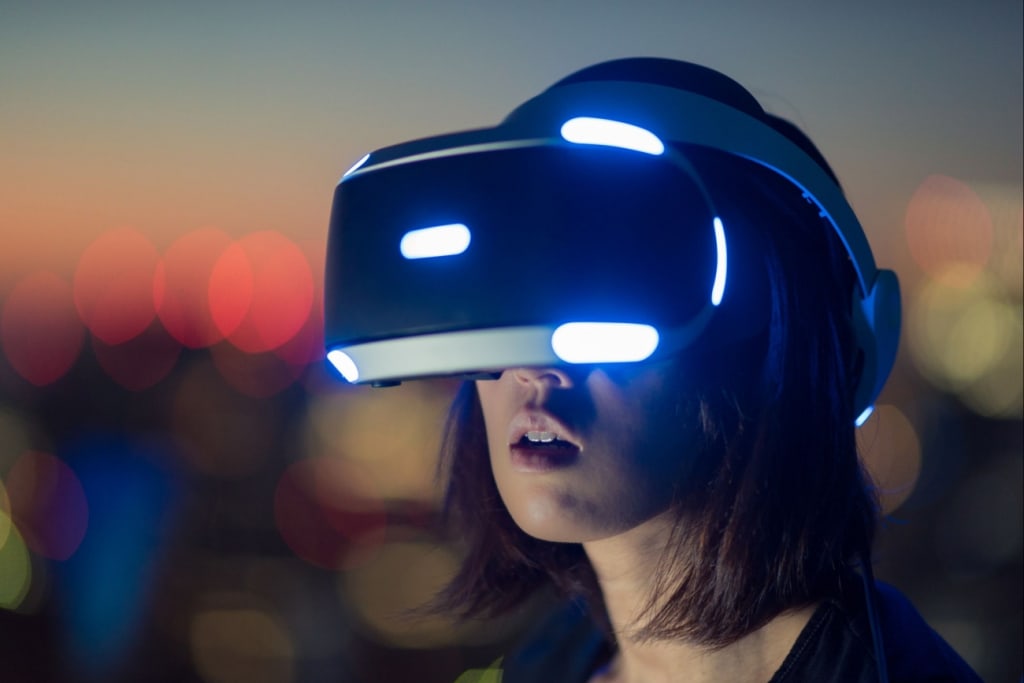Is Virtual Reality Dead?
No, really, is virtual reality dead—or is it just hitting a plateau?

Only a year ago, tech fans were talking about the new VR boom that has been getting developed. Major companies like Samsung, Microsoft, and Google all came out with augmented reality gear or started to promote their own VR headset. Apps were being made, as were games.
But, one year later, here we are. Google Cardboard is cheap as can be, but you never really hear about people using it at all. Uncomfortable as it may be to consider, we have to ask—is virtual reality dead?
If you were to ask an expert five years ago, "Is virtual reality dead?", you would have probably been laughed at. VR was considered to be the final frontier of computing, where people would feel fully immersed in their environments.
Virtual reality was hailed as the new way to blend the internet and reality together. Uses for augmented reality were being created everywhere we looked, and truthfully, some of the options they suggested really did seem to make sense.
During the "Wild West" of the internet age, the idea of VR was seen as something seriously sci-fi and that added even more allure to the concept.
In the 90s, virtual reality was seen as something almost mythical. In fact, they used to have television shows like VR Troopersthat were based on cheesy 90s kids show concepts of what life would be like in the future thanks to virtual reality.
Is virtual reality dead in that sense? Oh, absolutely. We all kind of realized how foolish it'd be to think that we could get downloaded into the internet like that. We're also not costumed monsters fighting bad guys.
To a point, tech juggernauts like Google wanted to pave the way for VR technology for their own reasons.
There was a time not too long ago where tech giants were competing to create the first augmented reality headset. Because there was so much respect for virtual reality, they had all the reason in the world to think it'd take off.
However, the road to virtual reality has been rocky—to say the least. If you don't believe it, think about Google Glass, the first real augmented reality headset to hit store shelves.
The glasses themselves cost anywhere from $800 to $1,500 a pop, and quickly were panned by critics. They were unsightly, and had the really unsettling ability to take photos of people and look up directions while the wearer was walking around.
The Google Glass experiment really captured what the good, the bad, and the ugly of wearable technology was. It also was called one of the worst tech flops in history. But, that alone wasn't enough to kill VR. Google Glass continues to be sold despite lagging interest.
The gaming industry quickly snapped up headsets and the like, however, reception has been spotty.
Oculus Rift and other virtual reality headsets quickly became really popular with gaming companies. It makes sense, considering that they offer a fully immersive gaming experience.
However, not all gamers bought these headsets and the number of games to be released on each headset has already shown some signs of lagging. The fact is that many gamers are seeing these headsets as too pricey for what they offer.
Headset use for factories and virtual tours also doesn't seem to be as popular as imagined.
A lot of augmented reality advocates and VR groups were very excited to promote professional use of virtual reality. Is virtual reality dead in this use? Well, it's really not looking as promising as they had hoped, that's for sure.
Most factories have not really shown much interest in upgrading training and other similar tours through virtual reality. As a result, sales on this end seem to be lagging pretty heavily. All things considered, it's not looking like this use will be widespread too soon.
More alarmingly, virtual reality headset makers are starting to get quieter about their goods.

Major tech conferences noted that Oculus Rift and other similar VR headset companies haven't been as active as they once were. Even PlayStation VR devices weren't being touted as "the next best thing" in recent conventions.
Typically, this is a sign that sales are lagging. So, maybe it's not a question of how virtual reality will blur the lines, but if it will do anything at all in the upcoming years.
In certain situations, virtual reality device companies haven't even been willing to release sales statistics.
If things were going well, chances are high that these companies would want to show off their sales. It'd warm investors up to put in more money towards research and marketing, right?
Well, TechCrunchrecently pointed out that a lot of companies have been lagging on the release of sales numbers. Some even went so far as to start dropping prices on virtual reality devices dramatically.
Is virtual reality dead as far as sales go? If anyone knows the answer to whether or not VR is dying out, it'd be the companies themselves. Either way, it's not looking very promising.
It seems like the hype that had driven VR into existence may have caused an overestimation in demand.

If there was one thing that science fiction writers proved to be good at, it's increasing the demand for crazy technology. Some sci-fi gadgets that came to life had included rockets to the moon, self-tieing sneakers (looking at you, Marty McFly), and virtual girlfriends.
Science fiction definitely liked its VR, but the truth is that most people don't really have much use for it in day-to-day activities. As a result, it seems like a lot of the reaction has been one of passing novelty rather than a life-changing revolution we may have hoped for in the past.
Is virtual reality dead, though?
It's really presumptuous to call a time of death on VR quite yet, even though the signs aren't looking too good. The thing about technology is that it can take a while for people to adopt it—and that's been true about everything from computers to smart phones.
Who knows? In the future, headsets might end up being as much an accessory as smart watches or anything else. However, it'd take a huge change for that future to happen.
About the Creator
Riley Raul Reese
Riley Reese is comic book fanatic who loves anything that has to do with science-fiction, anime, action movies, and Monster Energy drink.
Enjoyed the story? Support the Creator.
Subscribe for free to receive all their stories in your feed. You could also pledge your support or give them a one-off tip, letting them know you appreciate their work.






Comments
There are no comments for this story
Be the first to respond and start the conversation.